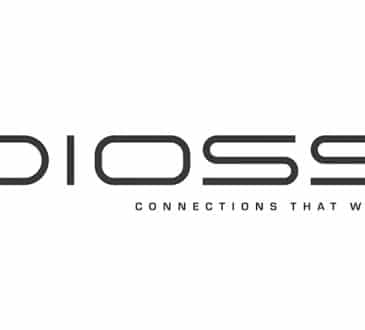6 Strategies to Help Build a Culture of Adaptability

Establishing a culture of adaptability might seem like a feat, but it is possible. Everything depends on your approach. If you understand your vision for the future, effectively relay it to your team, and keep the lines of communication open, your company will become more adaptable.
Few people would argue that adaptability isn’t important to business survival. After all, it puts your operation in a much better position to weather market fluctuations, tackle operational challenges, and pivot should your customers’ needs suddenly change. Without adaptable cultures, many businesses would have failed during the pandemic.
But what creates an adaptable culture? A clear vision. When your company has a clear vision, it’s easier to be flexible on how you achieve your goals. What’s effective today might not be tomorrow, so it’s essential to have a driving force that realigns team efforts and keeps everyone accountable.
Just remember that your vision must be communicated to team members frequently, in both transitional and stagnant times. If your business needs to adapt quickly, there must be an ongoing, open dialogue on how the change fits with your vision, why you’re making the change, and what its impact will be.
Of course, communication can be tricky. Even with an established culture of adaptability, you have to communicate in ways that can be easily received, digested, and understood. Some questions might be left unanswered, and that’s fine. But clarity and transparency are the keys to boosting your business’ agility.
When Culture Is Done Right
Although a culture of adaptability might allow your business to better respond to an unpredictable marketplace, it doesn’t make it immune to challenges. People working at companies with adaptable cultures are just as prone to experiencing stress.
The real difference is in how they handle stressors. Because they’re guided by an overarching vision, they’re motivated to serve a grander purpose beyond their personal goals. That’s why more than 50% of executives say a positive culture influences productivity, creativity, profitability, firm value, and growth rates.
Take JPMorgan Chase & Co., for example. The company has worked to establish a culture of adaptability. Although critical positions, such as retail bank branch workers and security, must be in person, the rest of the company utilizes a hybrid or fully remote work model. About 40% of workers telecommute a few days a week, and 10% work from home permanently. It’s all about better promoting the interests of staff and crafting a culture that fits within the future of work.
Creating a Culture of Adaptability
The look and feel of an adaptable culture will vary from one business to the next. It all depends on how you build it. Here’s how:
- Focus on fostering positivity through courageous conversations.
Though the term “courageous conversations” might not sound positive, it gives people the opportunity to express themselves openly and honestly. No one is judging or laying blame. It’s all about understanding each other’s viewpoints and reaching some sort of agreement. Think of it as a meeting of the minds. A lot of positivity can come from that. - Share your vision early and often.
As mentioned earlier, continually communicating your vision for the organization is a critical component of an adaptable culture. Don’t hold back just because the future isn’t 100% defined; your team will value your transparency. - Make brainstorming the norm.
Adaptability often relies on a team’s creativity, and one of the most effective means of nurturing creativity is through regular brainstorming sessions. If you’ve already been participating in courageous conversations, you’ve established the openness necessary for people to arrive at new solutions. - Decentralize decision-making.
Obviously, you have the final say in decisions as the company leader. But the entire team should have a voice in what’s being proposed. Decentralizing decision-making encourages people to share their ideas and concerns. This, in turn, can give your business the flexibility and agility it needs to respond to changes in the marketplace. - Accept setbacks.
Failing fast has become a cliché, but there’s still validity in the concept. When you fear failure, you simply cannot innovate and adapt to the times. Accept that failure is always an option, and make sure team members are willing to learn from initiatives that don’t meet expectations. - Establish fluidity in roles.
If you want a culture of adaptability, then your team members should be adaptable, too. One of the best ways to foster this is to incorporate fluidity into team members’ roles and responsibilities. Every task and duty should be subject to change without fear of losing one’s job. People need to understand and feel secure that their roles will be retooled down the line, which has nothing to do with their performance.
Creating a culture of adaptability allows businesses to better respond to marketplace shifts. Although you might still face challenges, you’ll be well-positioned to overcome difficulties and secure success moving forward.
Written by Melanie Clark.
Have you read?
These are the countries with the Highest Average Salaries, 2022.
International Financial Centers Ranking, 2022.
How Companies Are Using Tech to Disrupt Traditional Industries by Rhett Power.
Using Good Friction to Motivate Employees Back to Work by Soon Yu.
How to Live a Better Life & Leadership.
Four Steps to Successfully Build & Leverage Strategic Partnerships by Cristobel von Walstrom.
Add CEOWORLD magazine to your Google News feed.
Follow CEOWORLD magazine headlines on: Google News, LinkedIn, Twitter, and Facebook.
Copyright 2024 The CEOWORLD magazine. All rights reserved. This material (and any extract from it) must not be copied, redistributed or placed on any website, without CEOWORLD magazine' prior written consent. For media queries, please contact: info@ceoworld.biz








